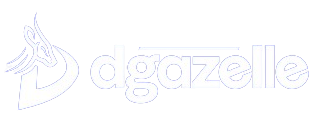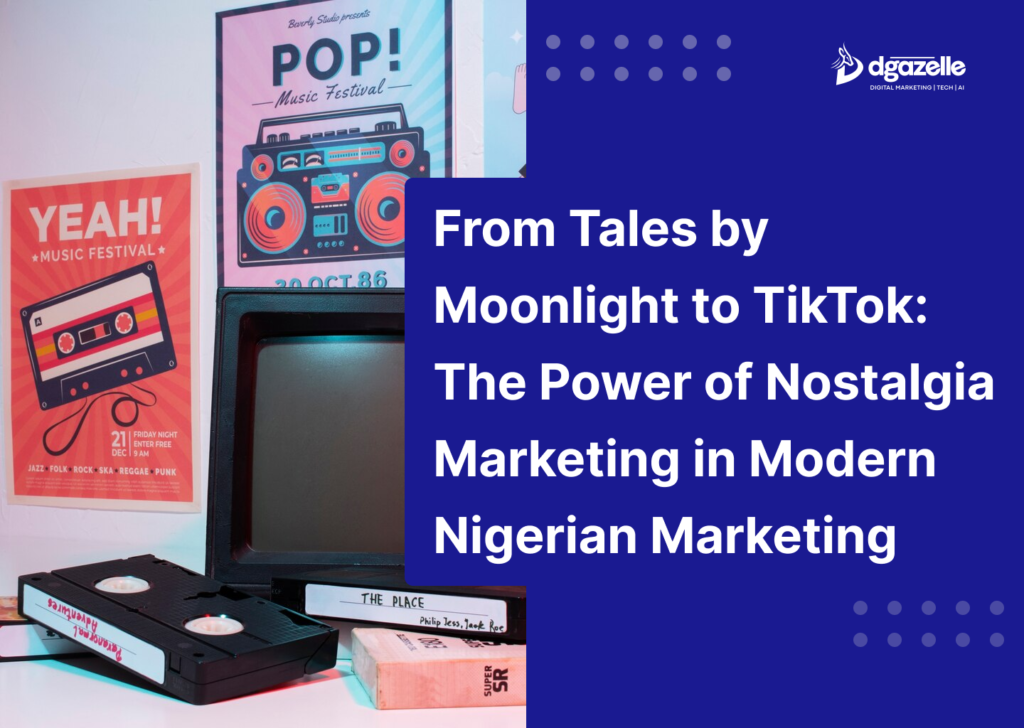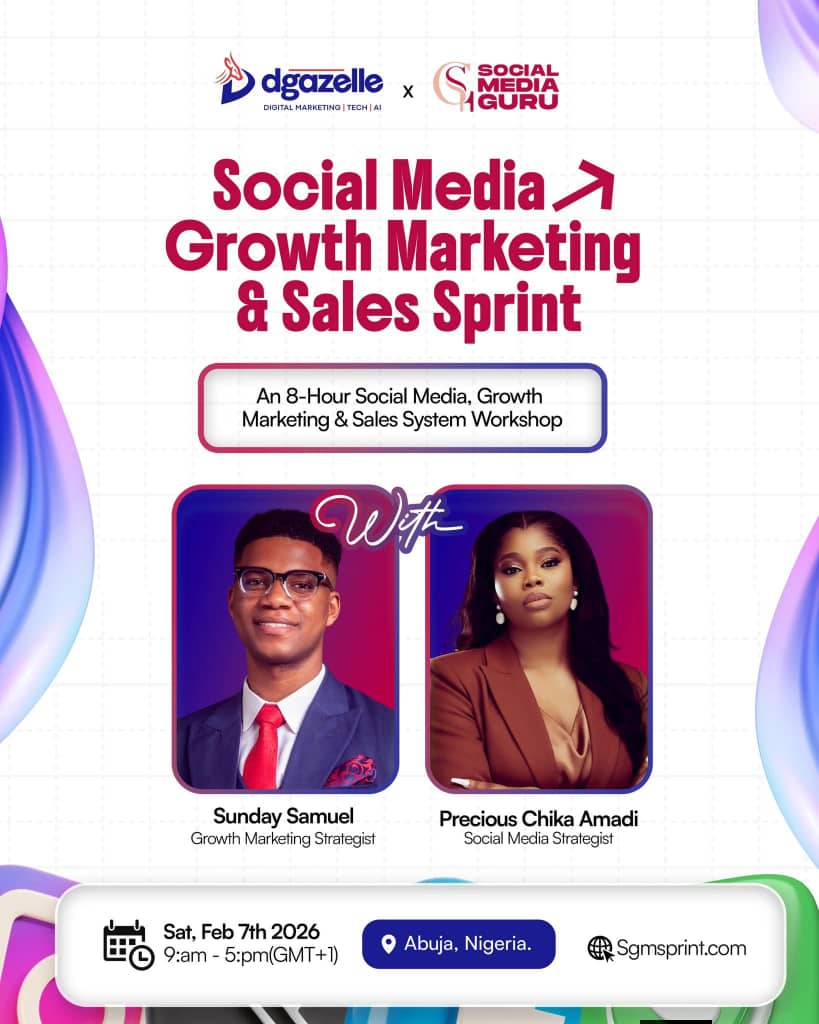Ever found yourself smiling at an old commercial jingle or reminiscing about Tales by Moonlight? That’s nostalgia marketing at work! It taps into deep emotions linked to cherished memories, instantly creating a bond between your brand and your audience.
But nostalgia marketing is more than just a sentimental trip down memory lane—it’s a powerful tool to drive engagement, loyalty, and sales. Nigerians love nostalgia, whether it’s the music of Plantashun Boiz, Super Story reruns, or childhood snacks like Baba Dudu and Goody Goody. As a small business, you can tap into these collective memories to connect with your audience in an authentic and emotionally compelling way.
Let’s explore how nostalgia marketing works and why it’s a game-changer for Nigerian brands.
What Is Nostalgia Marketing?
Nostalgia marketing is a strategy that connects your brand to past memories, creating an emotional bond with your audience. It taps into shared experiences—whether it’s childhood TV shows, classic snacks, or old-school fashion trends—to spark feelings of joy and familiarity.
Think of how Nigerians light up when they hear Tales by Moonlight mentioned or see a pack of Okin Biscuit. That’s nostalgia in action! Big brands use this by bringing back retro packaging (like Coca-Cola’s classic bottle design) or reviving old-school trends.
For Nigerian small businesses, nostalgia marketing can be a game-changer. Whether it’s referencing old Nollywood films, vintage Naija pop culture, or throwback slang (way back when “No wahala” was the go-to phrase!), you can use nostalgia to create content that resonates deeply with your audience.
Why Does Nostalgia Marketing Work?
Nostalgia marketing is powerful because it offers comfort and familiarity, especially in uncertain times. It transports people to the “good old days,” providing a sense of stability and joy. Research even suggests that nostalgia helps with emotional well-being, making people feel more connected and secure.
For Nigerian small businesses, nostalgia marketing is an opportunity to tap into shared cultural moments. Whether it’s the days of Papa Ajasco, Superstory, or the original MTN “Y’ello” commercials, these memories trigger strong emotions and connections. Nostalgia is also social—it creates conversations, bonding people over collective experiences.
Even though nostalgia feels personal, it has mass appeal. When a campaign reminds people of their childhood snacks (Gala and La Casera, anyone?), school days, or early social media experiences (2go and Facebook pokes!), it resonates deeply. It builds trust, strengthens brand loyalty, and—when done right—translates into higher engagement and sales.
Want to craft a nostalgia marketing campaign that resonates? Our digital marketing experts help brands connect with audiences through emotional storytelling. Let’s create your winning strategy today
How Does Nostalgia Marketing Work?
Nostalgia marketing taps into deep emotions, triggering feelings of joy, security, and familiarity. When people recall the “good old days,” they associate those memories with happiness—creating a powerful emotional bond with a brand.
For Nigerian Millennials and Gen X, nostalgia feels like comfort food for the brain. In a rapidly changing, often chaotic world, throwbacks to simpler times (remember when Nokia 3310 was king?) offer a welcome escape. Research even shows that nostalgia boosts emotional satisfaction, increasing brand loyalty and spending.
Beyond personal memories, nostalgia is social. A shared love for Tales by Moonlight or Super Strikas creates instant community. To tap into this, brands can use:
- Music: Familiar jingles or era-defining songs.
- Typography: Retro fonts from past decades.
- Color schemes: Neon for the 90s, earthy tones for the 70s.
- Language & slang: “No wahala,” “O sha pra pra.”
- Packaging: Vintage redesigns of beloved products.
By incorporating these, small businesses can create campaigns that resonate emotionally, boosting engagement and conversions.
Tips for Implementing Nostalgia Marketing
Nostalgia marketing can help brands create an emotional connection with their audience. Here are practical ways to incorporate it effectively:
1. Know Your Audience
To trigger nostalgia successfully, you must understand your target audience and their emotional connections to the past. Different generations have distinct cultural references that resonate with them.
- Millennials (Born 1981–1996) – Likely to connect with Super Strikas comics, Nokia 3310, MTV Base, Windows XP, and early social media platforms like 2go and BBM (BlackBerry Messenger).
- Gen Z (Born 1997–2012) – More nostalgic about early Instagram aesthetics, BBM status updates, One Direction, Avengers: Endgame, or subway surfers on iPod Touch.
- Gen X (Born 1965–1980) – May resonate with Village Headmaster, turntable records, cassette tapes, and old-school Nollywood classics.
To refine your approach, research:
- Cultural milestones – What significant events or trends defined their era?
- Entertainment preferences – What music, shows, or movies were most popular?
- Hobbies & activities – What games, pastimes, or gadgets were common?
Example: A Nigerian fashion brand targeting Millennials could bring back bootcut jeans and Rocawear-inspired outfits, while a beverage company could revive classic soft drink packaging.
Nostalgia is powerful—but only when done right. Our agency combines data-driven insights with creative storytelling to boost engagement and conversions. Let’s bring your brand’s past to life!
2. Leverage Social Listening
People constantly share nostalgic moments online. By tracking these conversations, brands can identify trending nostalgic topics and incorporate them into marketing campaigns.
How to stay ahead of nostalgia trends:
- Google Trends – Helps track searches related to nostalgic themes. For example, rising searches for “old-school cartoons” or “90s R&B songs” might indicate an opportunity to create content around them.
- Hootsuite/Sprout Social – These tools monitor discussions about past trends, products, and cultural moments.
- X (formerly Twitter) & Instagram – Trending hashtags like #ThrowbackThursday (#TBT) and #OldButGold can reveal what people are reminiscing about.
Example: If “Palm wine tapper movies” trends in Nigeria, a beverage brand could create content referencing Sam Loco Efe or Aki and Pawpaw to connect with older audiences.
3. Tap Into Company History
If your company has been around for a while, revisiting past branding elements can stir nostalgia and attract both new and returning customers.
Ways to leverage brand history:
- Reintroduce old logos, packaging, or ads – Companies like Indomie and Peak Milk have successfully revived old designs to trigger nostalgia.
- Bring back discontinued products – If customers loved an old product, consider relaunching it with a modern twist.
- Tell your brand story – Sharing archival footage, vintage advertisements, or “day-one” product packaging can remind customers of their long-standing relationship with your brand.
Example: Fan Milk Nigeria recently revived its Fan Ice branding, triggering nostalgia among Nigerians who grew up buying it from street vendors.
Conclusion
Nostalgia marketing is a powerful tool, but it requires a thoughtful approach to be truly effective. It’s not just about using retro visuals or catchy throwback references—it’s about strategically tapping into the emotional connections your audience has with the past.
To create an impactful nostalgia-driven campaign, start by identifying the cultural moments, trends, and experiences that shaped your target audience. Whether it’s a particular song, a childhood snack, or a vintage tech gadget, these elements should evoke a sense of familiarity and comfort. However, nostalgia should not feel outdated; instead, it should be reimagined in a way that resonates with today’s consumers.
The key to success is balance: blending the past with the present to create something fresh yet familiar. When done right, nostalgia marketing fosters engagement, strengthens brand loyalty, and turns sentimental memories into meaningful connections that drive action.
Reimagine the past with a fresh twist! We design nostalgia-infused campaigns that spark emotions and drive results. Let’s make your brand unforgettable.








